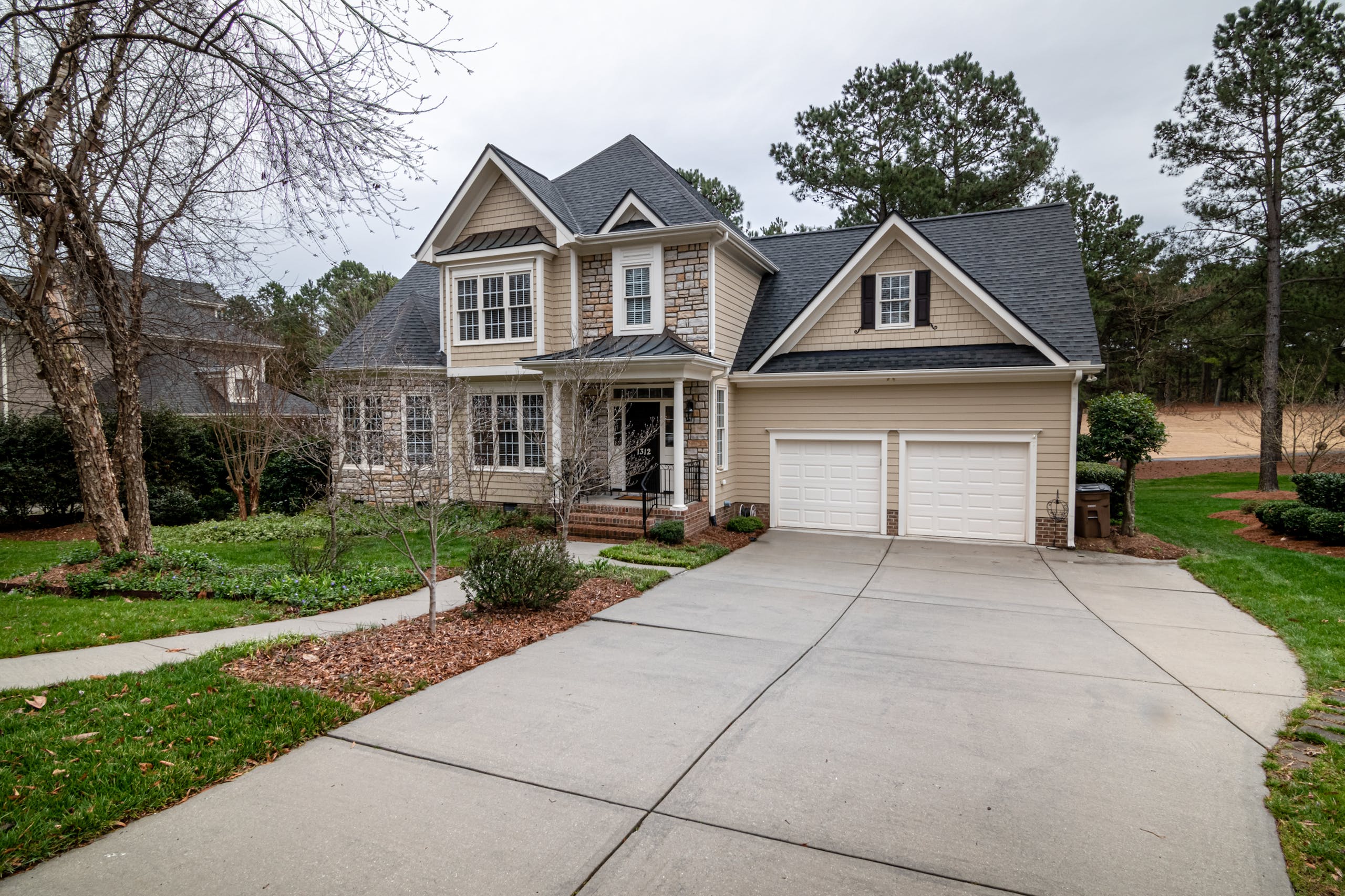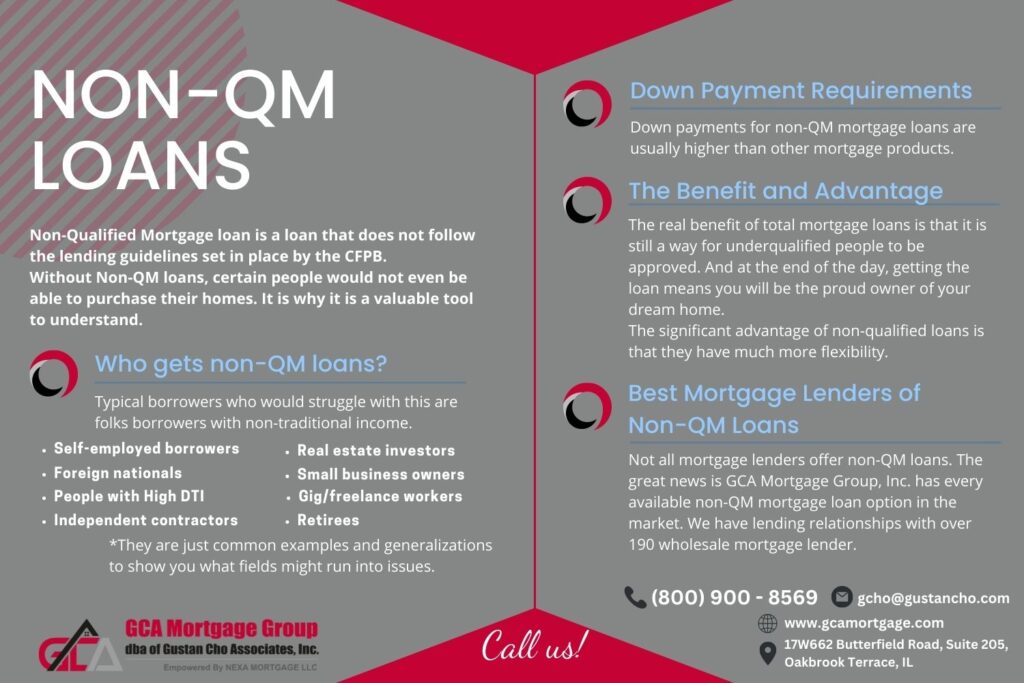Refinancing NON-QM Loans To Conventional Mortgages
In this blog will explore the intricacies of Refinancing NON-QM Loans to Conventional Mortgages, shedding light on the benefits, challenges, and essential considerations for homeowners contemplating this transition. Refinancing is a strategic financial move that allows homeowners to optimize their mortgage terms, potentially reducing interest rates, monthly payments, and overall debt.
For those with Non-Qualified Mortgage (NON-QM) loans, transitioning to Conventional Mortgages through refinancing presents an intriguing opportunity.
Want to Learn More about Refinancing NON-QM Loans To Conventional Mortgages?
What is NON-QM Loans?
Non-QM loans, short for Non-Qualified Mortgage loans, are mortgage products that do not adhere to the stringent criteria set by the Qualified Mortgage (QM) rule. Non-QM loans are designed for borrowers who might not satisfy the stringent guidelines of traditional mortgages but have unique financial situations or characteristics that make them eligible for alternative lending solutions. These loans are often considered outside the traditional “qualified” parameters due to factors such as unconventional income sources, higher debt-to-income ratios, or non-standard credit histories.
Key characteristics of Non-QM loans include:
-
Flexible Underwriting Standards:
Non-QM loans often feature more flexible underwriting standards, allowing for a broader range of borrower profiles.
-
Unconventional Income Consideration:
Unlike traditional mortgages, Non-QM loans may consider unconventional income sources, such as self-employment income, rental income, or other non-traditional sources.
-
Variety of Credit Histories:
Non-QM lenders may be more lenient regarding credit histories, accepting borrowers with unique credit situations, previous financial challenges, or non-traditional credit profiles.
-
Interest-Only Options:
Some Non-QM loans offer interest-only payment options, providing flexibility for borrowers, especially in the early years of the loan.
It’s important to note that while Non-QM loans offer flexibility, they may come with higher interest rates and costs compared to traditional mortgages. Borrowers considering Non-QM loans should carefully evaluate the terms, understand the potential risks, and ensure that the loan aligns with their financial goals and capabilities. Non-QM loans can be suitable for those who may not qualify for conventional financing but have the ability to repay the loan based on their unique financial circumstances.
The Rationale Behind Refinancing NON-QM Loans to Conventional Mortgages:
Homeowners may consider refinancing NON-QM loans to conventional mortgages due to changes in their financial situations. Improvements in credit scores, increased income stability, or a desire for more favorable loan terms can prompt this transition. Refinancing allows homeowners to lock in lower interest rates, converting from the potentially higher rates associated with NON-QM loans to the stability and predictability of conventional mortgages.
As homeowners make mortgage payments and property values appreciate, they build equity. Refinancing allows leveraging this equity, potentially securing better terms with a conventional mortgage.
Benefits of Refinancing NON-QM Loans to Conventional Mortgages:
A. Lower Interest Rates:
Transitioning to a conventional mortgage may offer lower interest rates than NON-QM loans, resulting in significant long-term savings.
B. Improved Loan Terms:
Conventional mortgages often come with more favorable terms, including fixed-rate options, which can enhance financial stability for homeowners.
C. Enhanced Financial Predictability:
Conventional mortgages provide predictability with fixed monthly payments, making budgeting and financial planning more straightforward.
D. Access to Home Equity:
Transitioning to a conventional mortgage through refinancing enables homeowners to tap into the accumulated equity in their homes, offering liquidity for a variety of purposes.
Experience the Benefits of Refinancing NON-QM Loans To Conventional Mortgages. Click Here!
The Refinancing Process: Steps and Considerations
-
Assessment of Current Loan:
Homeowners should evaluate the terms of their existing NON-QM loan, including interest rates, repayment terms, and any unique features. Understanding the current loan is crucial for making informed decisions during refinancing.
-
Creditworthiness Check:
Lenders will assess the homeowner’s creditworthiness, considering credit scores and financial stability—improvements in credit scores since initiating the NON-QM loan can contribute to securing more favorable terms.
-
Property Appraisal:
To establish the present market value, a property appraisal might be necessary. This step is crucial for calculating the loan-to-value ratio and assessing the home’s eligibility for conventional financing.
-
Selection of Conventional Mortgage Terms:
Homeowners should explore and select the most suitable conventional mortgage terms, including fixed or adjustable rates, loan duration, and other relevant features.
-
Application and Documentation:
Completing the application for a conventional mortgage involves providing necessary documentation, such as income verification, employment history, and any other documentation required by the lender.
-
Closing Process:
Upon approval, the closing process involves signing the new loan documents. Homeowners should carefully review the terms and associated costs before finalizing the refinance.
Potential Challenges and Considerations:
Refinancing involves closing costs, and homeowners should carefully assess these costs to determine the overall financial impact of the transition. The loan-to-value ratio plays a role in determining eligibility and terms. Homeowners should be mindful of this ratio and its implications for the refinancing process.
While creditworthiness is a crucial factor, homeowners should be aware that credit history may influence the terms offered by conventional lenders. Monitoring current market conditions is essential, as interest rates can fluctuate. Timing the refinancing process during lower rates can result in more significant savings.
Remember that the decision to refinance should align with your financial goals and circumstances. As with any financial decision, careful consideration, thorough research, and consultation with mortgage professionals are paramount. Apply for free quote with our expert, click here.
Frequently Asked Questions (FAQs)
- What is a Non-QM loan? A Non-QM (Non-Qualified Mortgage) loan is a type of mortgage that does not meet the criteria for a Qualified Mortgage (QM), often due to unique borrower circumstances or property types.
- Why would someone consider refinancing a Non-QM loan to a conventional mortgage? Borrowers may refinance to a conventional mortgage to obtain more advantageous conditions and reduce the interest rates or because they now qualify for a QM loan.
- What are the key differences between non-QM and conventional mortgages? Non-QM loans often have more flexible underwriting criteria, while conventional mortgages typically adhere to strict eligibility and documentation requirements.
- Can I refinance a Non-QM loan to a conventional mortgage? It is possible to refinance a Non-QM loan to a conventional mortgage, depending on your financial situation and creditworthiness.
- What are the benefits of refinancing from a Non-QM to a conventional mortgage? Benefits may include lower interest rates, reduced monthly payments, and access to conventional loan programs with competitive terms.
- Are there any eligibility requirements for this refinance? Eligibility requirements will depend on the lender and the specific conventional loan program you are applying for. Typically, good credit and financial stability are essential.
- Can I consolidate other debts when refinancing from non-QM to conventional? It may be possible to consolidate other debts into your new conventional mortgage, which can help streamline your finances.
- What is the process for refinancing a Non-QM loan to a conventional mortgage? The process involves applying for the conventional loan, providing documentation, undergoing underwriting, and completing the closing process, similar to obtaining any other mortgage.
- Can I refinance if I have had credit issues since obtaining the Non-QM loan? Refinancing to a conventional mortgage may still be possible, but it could be challenging if you have experienced significant credit issues. Lenders will assess your creditworthiness during the application process.
- How can I determine if refinancing to a conventional mortgage is the right choice for me? Consult with a mortgage professional to evaluate your current loan terms, financial goals, and eligibility for conventional refinancing. They can help you make an informed decision based on your unique circumstances.
The transition from NON-QM to conventional financing provides an opportunity for increased financial stability, lower interest rates, and improved predictability in homeownership. By navigating the refinancing process thoughtfully, homeowners can position themselves for enhanced long-term financial well-being.
Here at Gustan Cho Associates, our Loan Officers are experts when it comes to Refinancing NON-QM Loans To Conventional Mortgages. Talk to us by calling 800-900-8569 or text us for a faster response. You can also send us an email at gcho@gustancho.com or alex@gustancho.com. We are available even during weekends and holidays!


